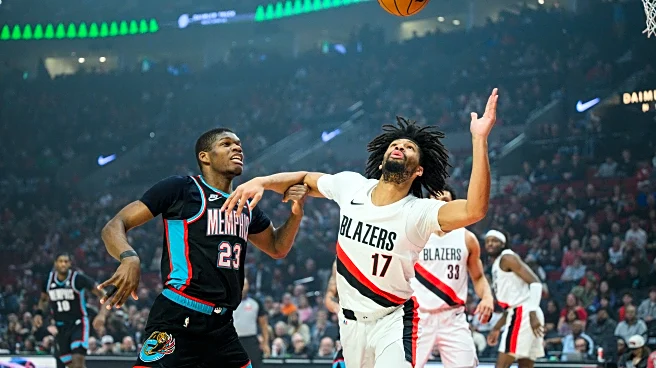What's Happening?
Suno, an AI music company, is contesting a copyright lawsuit filed by indie artist Tony Justice, which claims that Suno's AI models infringe on sound recordings. Justice's lawsuit, filed in June, alleges that Suno and Udio, another AI music company, are using unlicensed sound recordings to train their AI models, similar to claims made by major labels like Universal Music Group, Warner Music Group, and Sony Music Entertainment. Suno argues that its tool generates new sounds rather than using samples, and thus does not infringe on existing songs. The company is seeking to dismiss Justice's claims, which hinge on whether AI training constitutes fair use under copyright law.
Why It's Important?
The lawsuit against Suno highlights ongoing legal challenges faced by AI companies in the music industry. The outcome could set a precedent for how AI-generated music is treated under copyright law, impacting both indie artists and major labels. If Suno's defense is successful, it may pave the way for broader acceptance of AI-generated music, potentially altering the landscape of music production and distribution. Conversely, if the lawsuit succeeds, it could impose stricter regulations on AI companies, affecting their ability to innovate and operate within the industry.
What's Next?
The case will likely continue to explore the legal boundaries of AI-generated music and fair use. As the lawsuit progresses, stakeholders in the music industry, including artists, labels, and AI companies, will be closely monitoring the developments. The decision could influence future litigation and policy-making regarding AI and copyright law. Additionally, music publishers may consider initiating their own legal actions, further complicating the legal environment for AI-generated content.









